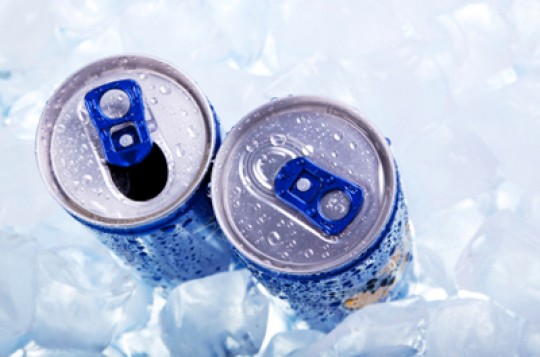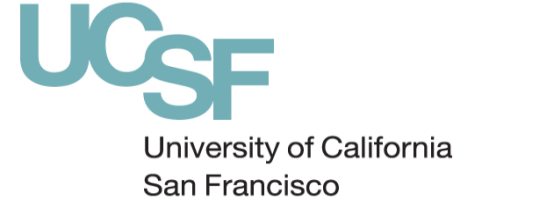How Many Lives Could a Soda Tax Save?
How Many Lives Could a Soda Tax Save?
UCSF Analysis Suggests Tax on Sugary Beverages Would Prevent Heart Disease, Stroke and Diabetes, Save Billions in Health Care Costs
Every year, Americans drink 13.8 billion gallons of soda, fruit punch, sweet tea, sports drinks, and other sweetened beverages — a mass consumption of sugar that is fueling soaring obesity and diabetes rates in the United States.
Now a group of scientists at the University of California, San Francisco (UCSF), San Francisco General Hospital and Trauma Center (SFGH) and Columbia University have analyzed the effect of a nationwide tax on these sugary drinks.
They estimate slapping a penny-per-ounce tax on sweetened beverages would prevent nearly 100,000 cases of heart disease, 8,000 strokes, and 26,000 deaths over the next decade.

Kirsten Bibbins-Domingo, MD, PhD,
an associate professor of medicine and of epidemiology and biostatistics at UCSF
and acting director of the Center for Vulnerable Populations at the UCSF-affiliated SFGH
“You would also prevent 240,000 cases of diabetes per year,” said Kirsten Bibbins-Domingo, MD, PhD, an associate professor of medicine and of epidemiology and biostatistics at UCSF and acting director of the Center for Vulnerable Populations at the UCSF-affiliated SFGH.
U.S. Consumption of Sweet Beverages
- 13.8 billion: Number of gallons consumed in 2009
- 45: Number of gallons consumed annually per person
- 17: Number of teaspoons of sugar in a typical 22-oz soda
- 70,000: Number of calories average person consumes per year in sweet drinks
Source: HealthAffairs
Diabetes in the United States
- 25.8 million: Number of people who have diabetes
- 8.3: Percentage of population affected
- 174 billion: Annual cost in dollars of diabetes
- 7: Ranking on list of leading causes of death
Source: U.S. Centers for Disease Control and Prevention
In addition to $13 billion per year in direct tax revenue, Bibbins-Domingo and her colleagues estimated that such a tax would save the public $17 billion over the next decade in health care-related expenses due to the decline of obesity-related diseases.
“Our hope is that these types of numbers are useful for policy makers to weigh decisions,” she said.
High Cost of High-Calorie Drinks
Consumption of beverages high in calories but poor in nutritional value is the number one source of added sugar and excess calories in the American diet. Sugar-sweetened drinks are linked to type 2 diabetes and weight gain.
The U.S. Centers for Disease Control and Prevention (CDC) listed reducing the intake of these beverages as one of its chief obesity prevention strategies in 2009, and several states and cities, including California and New York City, are already considering such taxes.
The analysis by Bibbins-Domingo and her colleagues is among the first study to generate concrete estimates of the health benefits and cost savings of such a tax. They modeled these benefits by taking into account how many sodas and sugary beverages Americans drink every year and estimating how much less they would consume if a penny-per-ounce tax were imposed on these drinks. Economists have estimated that such a tax would reduce consumption by 10 percent to 15 percent over a decade.
They then modeled how this reduction would play out in terms of reducing the burdens of diabetes, heart disease and their associated health care costs.
The article, “A Penny-Per-Ounce Tax On Sugar-Sweetened Beverages Would Cut Health And Cost Burdens Of Diabetes,” by Y. Claire Wang, Pamela Coxson, Yu-Ming Shen, Lee Goldman and Kirsten Bibbins-Domingo appears in the January issue of Health Affairs.
This work was funded by the Robert Wood Johnson Foundation and the American Heart Association, Western States Affiliate.
UCSF is a leading university dedicated to promoting health worldwide through advanced biomedical research, graduate-level education in the life sciences and health professions, and excellence in patient care.
By Jason Bardi
Senior Public Information Representative
University of California, San Francisco (UCSF)
###
> About University of California, San Francisco (UCSF).
The University of California, San Francisco (UCSF) is a leading university dedicated to promoting health worldwide through advanced biomedical research, graduate-level education in the life sciences and health professions, and excellence in patient care. It is the only UC campus in the 10-campus system dedicated exclusively to the health sciences.
More about University of California, San Francisco (UCSF).
More about University of California, San Francisco (UCSF). Information.
###
* The above story is adapted from materials provided by University of California, San Francisco (UCSF)
________________________________________________________________





















